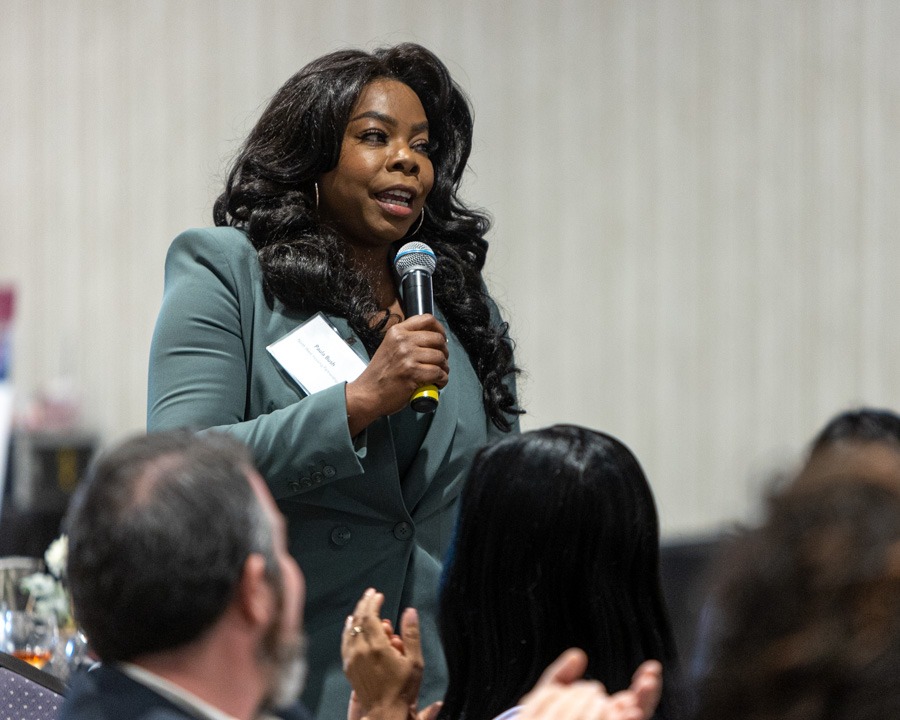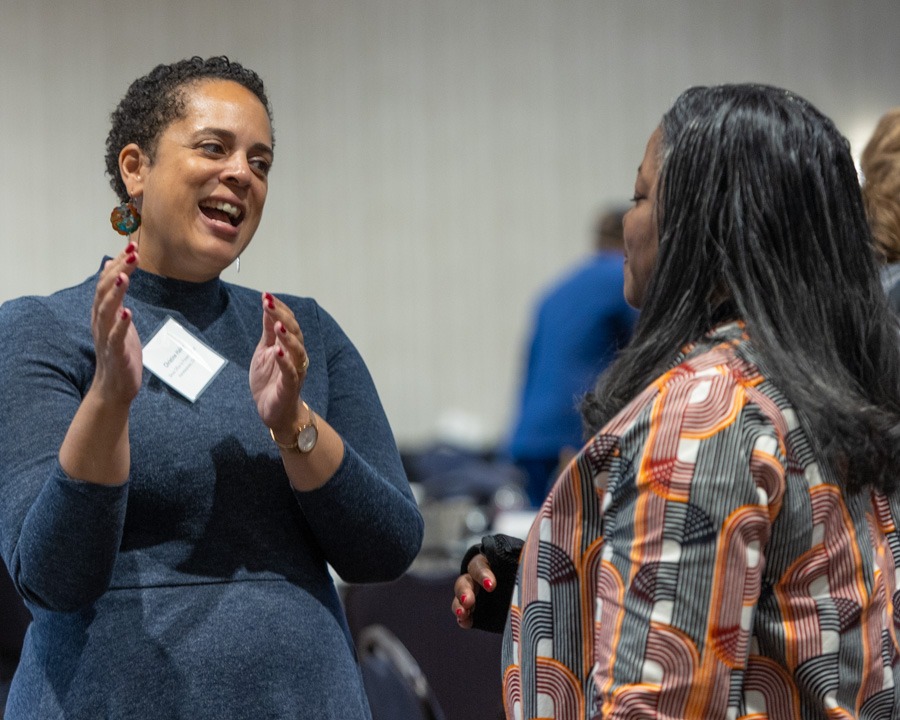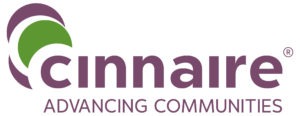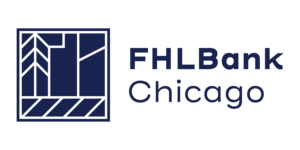Housing Matters
October 20 & 21 | Bloomington, IL

2022 Conference Program
This year, we were excited to be back in person for the first time in two years and to celebrate our 35th anniversary together. More than 250 participants joined us to dig into the issues, hear from experts, and build relationships on October 20 & 21 in Bloomington, Illinois. During the conference, in addition to our general sessions and breakout workshops, we facilitated networking, held a reception, and toasted to our long history of wins for affordable housing at our 35th Anniversary Gala Dinner.
Thank you to all of the speakers, sponsors, supporters, and conference attendees that participated in the 2022 Housing Matters Conference and helped to make it a success.
Presentations
Workshop presentations are available for selected speakers; click through below to download the slides.

HUD Midwest Regional Administrator Diane M. Shelley
General Sessions
Opening Plenary
Storytelling Through Community
Emily Hooper Lansana Community Builder, Storyteller, Arts Administrator, Educator
Download presentation slides »
Download handout »
Storytelling is an art form that encourages self exploration and nurtures community building. In this interactive opening session, we will focus on creative ways to discover and share stories related to ourselves and our organizations. Collectively, we will consider stories that encourage and sustain our communities. We’ll explore what we’ve lost, what we’ve learned, and what we’ve gained during the COVID-19 pandemic. In this unique moment in history, it is critically important to share our distinct challenges and to explore our connections to each other, our work, and our communities.
Membership Meeting & Luncheon Keynote
HUD Midwest Regional Administrator Diane M. Shelley
Download member meeting slides »
Download keynote slides »
During our annual membership meeting, we’ll share our recent successes and challenges, as well as goals for the coming year. Housing Action’s membership will also vote on new and renewing Directors for its Board. Then we will welcome Diane M. Shelley, recently appointed Regional Administrator for HUD’s Midwest Regional Office, for keynote remarks. Ms. Shelley will discuss HUD’s new initiatives and current priorities to support efforts to end homelessness, create and preserve affordable housing, and support sustainable homeownership. All are welcome to join, whether or not your organization is a member.
Closing Plenary
Appraisers, Brokers, Bankers, & You
IDFPR Secretary Mario Treto, Jr. in conversation with the Woodstock Institute’s Horacio Mendez
Join us for a wide-ranging discussion between Illinois Department of Financial & Professional Regulation (IDFPR) Secretary Mario Treto, Jr. and Housing Action Board member and Woodstock Institute President & CEO Horacio Mendez, as they discuss IDFPR’s expanding role to regulate financial institutions through the Illinois Community Reinvestment Act and Illinois Banking Development Districts Act, and to influence housing appraisals through its facilitation of the newly-created Real Estate Valuation Task Force. IDFPR regulates over 1.2 million licenses, including real estate brokers, almost 200 state-charter credit unions, over 300 state-charter commercial and savings banks, and 15,000 mortgage loan originators, companies and branches.
Breakout Workshops I
Implementing the State Plan to Prevent & End Homelessness
Speaker: Christine Haley, Chief of the Illinois Office to Prevent and End Homelessness
Download presentation slides »
The State of Illinois’ first plan to prevent and end homelessness was submitted to Governor Pritzker and the General Assembly in June. Working with the State Homelessness Chief, an Interagency Task Force on Homelessness and a Community Advisory Council have primary responsibility for developing and overseeing the plan. Using a racial equity framework, the plan’s foundation is built on four pillars: Building Affordable Housing and Permanent Supportive Housing; Bolstering the Safety Net; Securing Financial Stability; and Closing the Mortality Gap. At this session, participants will get an update on the plan’s key initiatives, as well as find out how they can get involved in supporting this effort to reach functional zero homelessness in Illinois.
Breaking Down Appraisal Bias
Moderator: David Young, Housing Action Illinois
Speakers: Blake Mitchell, HOPE Fair Housing Center; Falon Young, NHS of Chicago; Rachel Johnston, Chicago Rehab Network; Monique King-Viehland, JPMorgan Chase
Download presentation slides »
An appraisal is the primary tool lenders use to determine the value of homes for purchase and refinance transactions. Appraisals matter because they affect how much people pay when buying a home or how much equity is available in a refinance transaction. Racial and ethnic bias in the way that appraisals are conducted have contributed to reduced values in majority minority neighborhoods, resulting in a loss of wealth building potential for Black and Latinx households. Both the federal government and major lenders have acknowledged problems with the current appraisal system. How did bias get built into the appraisal system? What can be done to create a more equitable system? Join us to hear about efforts to test for and prove appraisal bias, state level advocacy to regulate appraisals, and steps that banks can take to mitigate bias.
Promising Initiatives to Prevent Eviction
Moderator: Tyrina Newkirk, Illinois Equal Justice Foundation
Speakers: Michelle Gilbert, Lawyers’ Committee for Better Housing; Sam Tuttle, Eviction Help Illinois/Illinois Equal Justice Foundation
Download presentation slides »
Court-based emergency rent assistance and services, including expanded mediation and legal representation, have been critical in preventing evictions and keeping people housed during the COVID-19 pandemic in Illinois. Join this session to hear from legal experts implementing these programs, including key staff working on Cook County Legal Aid for Housing and Debt (CCLAHD) and evictionhelpillinois.org. We’ll share ongoing experiences and lessons learned, as well as discuss what the future holds for these types of services once federal emergency rent assistance funds are fully exhausted and how we can advocate together for the resources and policy changes needed to build on these promising initiatives.
Breakout Workshops II
Housing Counseling Agencies & Homeless Service Providers in Conversation
Speakers: Sandy Deters, Embarras River Basin Agency; Katie Spoden Eighan, Alliance to End Homelessness of Suburban Cook County; Darsonya Switzer, Dove, Inc.; Carl Wolf, Respond Now
Download presentation slides »
Housing counseling agencies and homeless service providers often work in the same communities without fully understanding each other’s programs and services. Continuums of Care are committed to serving clients who are currently experiencing homelessness, and many housing counseling agencies are committed to serving clients that are rent-burdened, living just one emergency or missed paycheck away from losing their housing. Both ultimately support families and individuals who struggle to find and keep good, affordable homes. By strengthening partnerships between agencies and providers, we will be better able to meet the needs of our communities. Join this conversation to learn more about how homeless service providers and housing counselors can better communicate with each other, share resources, and work more closely to reduce homelessness.
Untapped Opportunities: PHA Homeownership Programs
Speakers: Patricia Fron, Chicago Area Fair Housing Alliance; Adrienne Grover, Springfield Housing Authority; Amber Hendley, Woodstock Institute
Download presentation slides »
Do you work with clients or residents who have Housing Choice Vouchers and want to make the transition from renting to owning a home? Join us to learn about the Housing Choice Voucher Homeownership Program, a valuable resource that could help them on their path to homeownership. Funded by the U.S. Department of Housing and Urban Development (HUD) and administered through Public Housing Authorities (PHAs), this program assists low-income individuals in purchasing homes by allowing qualified buyers to use their voucher subsidies to help pay a monthly mortgage. Our panel of experts will discuss the details of the program, share findings from a recent report on how this program has been working for PHAs in Illinois, and share personal program participant experiences.
Addressing Housing Challenges Experienced by Refugees
Speakers: Galya Ben-Arieh, Northwestern University/Community Partnerships for Settlement Strategies; Lori Consadori Lucchetti, Building Peaceful Bridges; David Zverow, Refugee Action Network
Download presentation slides »
Due to the wars and crises in Afghanistan, Ukraine, and elsewhere, along with a more welcoming environment by the Biden administration, an increasing number of refugees are coming to our country. As refugees work to establish new lives in our communities, one of the major challenges they face is securing decent, affordable housing. Join us to hear from staff that work in resettlement and advocacy and learn about successes and challenges experienced by people fleeing their homes, as well as what resources are needed to create a more welcoming environment in our country. We’ll also discuss how the housing struggles faced by refugees are emblematic of the overall shortage of affordable housing in our society and what solutions we can all work on together.
Breakout Workshops III
Expanding Medical Respite Care for People Experiencing Homelessness
Speakers: Dr. Chuck Bareis, Loyola Medicine MacNeal Hospital; Christine Haley, Illinois Department of Human Services; Dr. Keiki Hinami, Cook County Health; Lynda Schueler, Housing Forward
Download presentation slides »
Medical respite care is acute and post-acute care for persons experiencing homelessness who are not ill enough to need to be in a hospital, but whose recovery from a physical illness or injury will be hindered without the support and stability that are impossible if someone is on the street or only has access to basic shelter. Join us to learn about the medical respite models from shelter and medical providers from Housing Forward, Cook County Health and Loyola Medicine MacNeal Hospital. Through the Medical Respite Capacity Building Initiative, the Illinois Office to Prevent & End Homelessness will support technical assistance and capacity building grants for communities to increase their ability to provide medical respite services to persons experiencing homelessness leaving in-patient hospital stays.
LIHTC 101: The Basics of Low-Income Housing Tax Credits
Speakers: Jolyn Heun & Billy Lyman, Applegate & Thorne- Thomsen
Download presentation slides »
The Low-Income Housing Tax Credit (LIHTC) is a federal tax incentive that subsidizes the acquisition, construction, and rehabilitation of affordable rental housing for low- and moderate-income tenants. Many kinds of rental buildings are eligible for LIHTC, including apartment buildings, single-family dwellings, townhouses, and duplexes. Join us for a beginner’s introduction to the tax credit, which is the largest source of new affordable housing in the United States. How are LIHTCs awarded? How is an eligible project structured? How are LIHTCs calculated? What type of compliance is needed? We’ll cover all these questions and more, then discuss resources and guidance available to support smaller organizations and newcomers interested in developing qualifying LIHTC projects.
Building Trust in Housing Counseling: Lessons from Metro St. Louis
Speakers: Paula E.W. Carey-Moore, Kesha Chatman, & Ivy Grant, Urban League of Metropolitian St. Louis
Download presentation slides »
In recent years, the Housing Division and the St. Clair County, IL Outreach Center of the Urban League of Metropolitan St. Louis have started exploring creative ways to build trust with community residents before introducing their housing counseling services. By first asking residents about their needs and building relationships, they have been more successful in their housing counseling and credit building initiatives. This session will provide a case study of their approach, including how the outreach has worked in Illinois communities. Join us to get ideas you can bring back and implement for your own housing counseling program’s community outreach.
Breakout Workshops IV
Illinois’ New Source of Income Protections
Speakers: Michael Chavarria, HOPE Fair Housing; Emily Petri, Prairie State Legal Services; Lily Walton, Housing Authority of Champaign County; Nabi Yisrael, Access Living
Download presentation slides »
After multiple campaigns over the course of almost 20 years, state legislation creating source of income fair housing protections finally passed during the 2022 Illinois legislative session. House Bill 2775 adds these protections, which make housing more accessible to families with nonwage income, to the Illinois Human Rights Act. Over half of Illinois households have some sort of nonwage income, such as social security, retirement income and/or public assistance, that will receive protections against discrimination under this law. In addition, about 99,000 households who use Housing Choice Vouchers to pay their rent have historically experienced source of income discrimination. Join us for a panel discussion about the advocacy needed to pass the bill, what the new state law means for people seeking housing, and how you can get involved in public education efforts.
Building Community as a Housing Development Strategy
Moderator: Gail Schechter, H.O.M.E.
Speakers: Jacqueline Boyd, One Roof Chicago; Nikki Moustafa, H.O.M.E.
Download presentation slides »
Living in a community is as important a human need as food and shelter. That’s why there’s significant demand among older people for living in housing that allows them to remain in the multi-generational mainstream – and, for LGBTQ+ older people, to live in a safe and welcoming environment. However, the options available for older adults are often limited to age-restricted housing, and too many have also encountered discrimination in these environments based on racial, religious, gender identity, and other differences. Join our panel of experts to learn about intergenerational housing development models that allow for low-income seniors, younger adults, and families with children to thrive together in community and to discuss housing industry challenges and opportunities.
Market Trends & Rising Costs: Barriers to First-Time Homeownership
Speakers: Luke Bell, Zillow; David Noble, Midland States Bank, Margaret Wooten, formerly with Chicago Urban League
Download presentation slides »
Recent trends such as climbing interest rates, high demand combined with low supply, and competition from institutional investors have transformed the homeownership market. How are these changes impacting would-be first-time homeowners? Will these trends widen the homeownership gap? How should housing counselors advise individuals and families trying to navigate a complicated, shifting housing market? Our panel of experts from the banking, finance, and housing counseling sectors will discuss current changes in the marketplace, what to expect in the future, and ways housing counselors can prepare clients to be successful in buying a home.
























